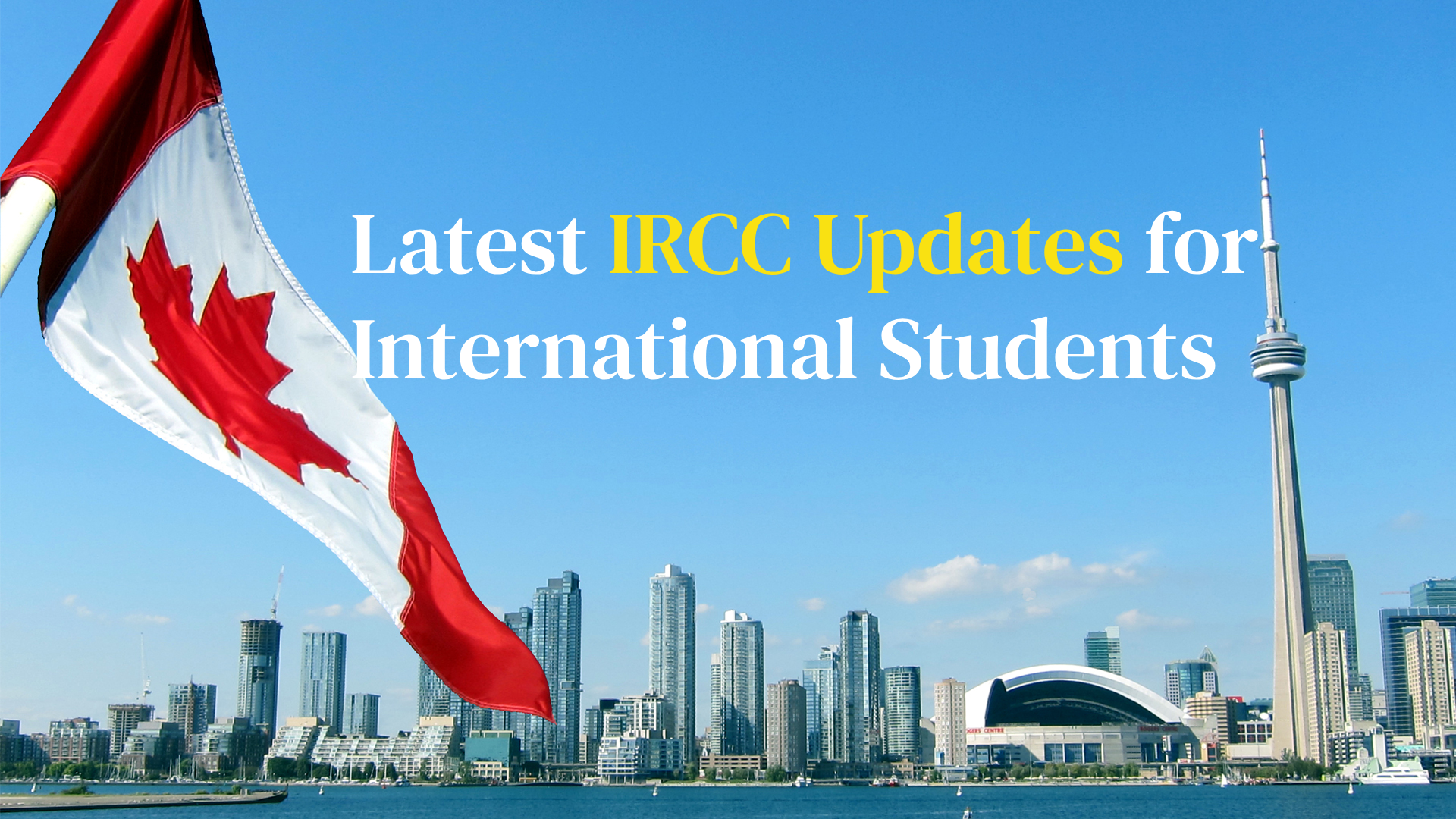Latest Canada Immigration News and IRCC Policy Updates for International Students in 2024
Canada has long been a popular study abroad destination for international students from around the world. With its world-class education system, tolerant society, and post-graduation work and immigration prospects, Canada offers immense opportunities to foreign students looking to study overseas.
However, in recent times, Canada has introduced several policy changes that can deeply impact new and existing international students in the country. If you are planning to study in Canada soon, it is crucial you understand the latest Canada immigration news and updates from IRCC (Immigration, Refugees and Citizenship Canada).
This blog aims to highlight all the recent IRCC policy changes concerning international students in Canada, analyze their impact, and provide tips to navigate the changing landscape.
Increasing Financial Requirements for New Study Permit Applicants
One of the most important Canada immigration news items from IRCC is the planned increase in financial requirements for new study permit applicants starting Fall 2024.
- Earlier applicants had to show proof of CAD 10,000 as living expenses for an academic year.
- From 2024 onwards, IRCC plans to double this requirement to CAD 20,000 per year to cover increases in accommodation, food, transport and other costs.
This amended rule can greatly impact international students planning to study in Canada from next year onward. To ensure your study permit success, you need to prepare in advance for this updated financial requirement.
Some effective strategies include:
- Saving money to demonstrate adequate funds upfront
- Applying for scholarships/bursary offerings by Canadian colleges
- Discussing loan options from financial institutions in your home country
Possible Cap on New International Students after Fall 2024
Another crucial IRCC update proposes capping the number of study permits and restricting new international student entry into Canada from 2024 onwards.
Canada welcomed over 638,000 international students in 2022, a massive 17.4% increase from 2021. With the pandemic-led backlogs in permanent residence applications, Canada aims to moderate new student inflow and ease this immigration burden.
If a visa cap gets introduced after Fall 2024 intakes, it can have widespread ramifications for globally mobile students like you. Competing for limited student visas, you may experience barriers like:
- Stricter visa eligibility and screening requirements
- Lower post-study work and immigration opportunities
- Risk of admission denials after issuing visa refusals
To maximize your prospects, applying to Canadian colleges or universities well in advance before Fall 2024 remains key. Securing admission and visa approval earlier when no restrictions exist yet gives you the best chance.
Extended Full-Time Work Policy for International Students
While some concerning updates made headlines, a policy change around part-time work eligibility garnered positive reception.
International students in Canada can now work up to 30 hours a week instead of only 20 hours during regular semesters. This limit gets further eased for scheduled breaks like winter or summer holidays.
This amendment allows you to save and earn more in Canada through campus jobs, co-ops or external employment. With rising inflation and costs-of-living, the increased work allowance comes as a boon for students facing financial constraints.
Some key advantages include:
- Earning more to cover tuition fees and daily living expenses
- Gaining professional Canadian work experience before graduating
- Saving money for PR settlement funds requirement
Leverage this update judiciously to reduce financial dependence back home. However, give foremost priority to academics instead of overworking.
Extended Distance Learning Measures
The COVID-19 pandemic compelled Canadian immigration authorities to introduce more flexibility for international students. Students could study remotely from abroad for up to 50% of their program duration.
This provision gets extended continually as travel and mobility constraints prevail globally. IRCC confirms distance learning measures to remain permissible beyond 2023 as well to accommodate students stuck overseas.
However, this distance learning leniency stays temporary and unlikely to stretch beyond 2024 given Canada’s preference for in-person teaching models.
If studying from your home country, remember that:
- You need to enter Canada latest by early 2025 for in-class studies
- PR eligibility necessitates physical presence on Canadian soil
- Remote learning allowance cannot turn into a permanent facility
So have a contingency plan ready to travel to Canada as soon as global mobility issues get resolved.
No PGWP Extension Beyond 2024
Canada immigration news reports suggest the post-graduation work permit (PGWP) duration may not undergo extensions beyond 2024. Currently at 4 years, industry groups lobbied extensively to extend PGWP validity to 5 or 6 years.
However, IRCC has so far rejected these proposals citing pending PR application backlogs. PGWP duration will likely be capped at 4-year maximum validity for 2023 and 2024 graduates.
If you graduate later, you have comparatively lesser post-study work rights. Developing a focused PR roadmap factoring in this PGWP deadline becomes vital.
- Target Express Entry immigration within 2 years of graduation
- Alternatively, pursue in-demand provincial nomination streams
- Avoid losing time so you transition before PGWP expiration
Not planning your permanent residency effectively well in time can put your immigration future in Canada at risk later.
Tips for Prospective International Students
Given the dynamic immigration policy landscape in Canada, what should you do to study successfully and migrate eventually as planned?
Here are 5 researched tips:
- Thoroughly research costs, scholarships, top programs aligned with in-demand occupations
- Target programs guaranteeing co-op terms, work placements and better post-study work eligibility
- Understand PR eligibility criteria and include PNP streams in target provinces
- Plan finances prudently factoring in increased living costs in Canada
- Apply ASAP to colleges before any potential visa caps come into effect
Following these tips proactively will better position you to navigate new policies and study without hassles.
The Bottom Line – Assessing Canada’s Environment for International Students
In conclusion, while Canada immigration news lately highlights policy changes concerning international students, the country still remains a top study abroad choice globally.
Despite introduction of caps, increased financial requirements or reduced post-study rights in the future, over 500,000 international students entered Canada in 2022 alone. The sheer scale of this inflow reinforces that Canada continues valuing diversity and the economic & cultural contributions of overseas students to its society.
However, you must monitor immigration policy updates regularly and align your plans strategically. Work closely with professional consultants like Choose Bishop Immigration who can guide you accurately to overcome new Canada PR challenges through:
- Securing quick admissions despite potential visa caps
- Obtaining financial assistance through scholarships & co-op programs
- Building strong PR profiles despite reduced post-study work validity periods
- Formulating alternative PR pathways given possible Express Entry obstacles
Stay informed on the latest IRCC news and updates consistently. Being well prepared, vigilant and flexible to policy changes will help realize your Canadian immigration dreams successfully despite more restrictive measures.

